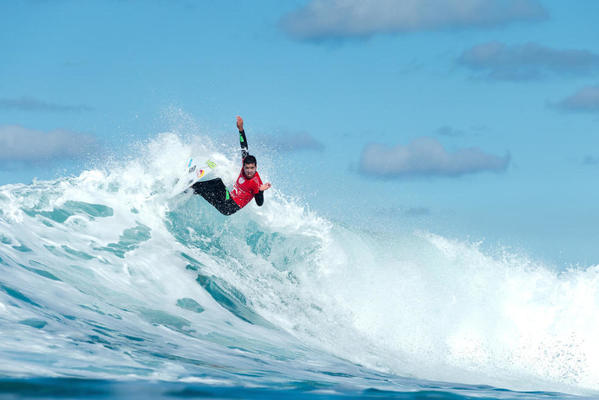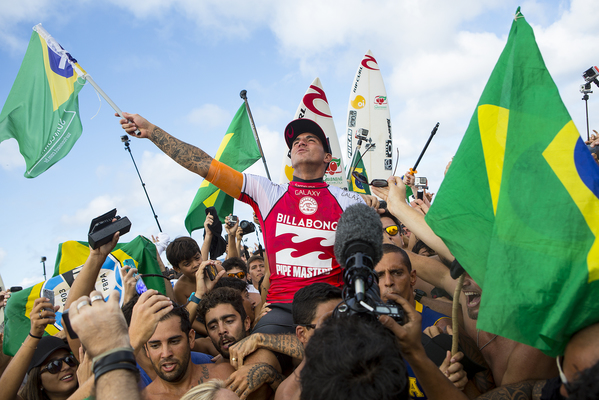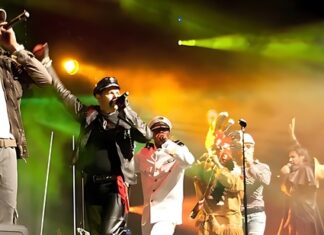By PHIL JARRATT
WHILE it was great to see the Aussie Mick Fanning triumph over the Brazilian Adriano De Souza at the Rip Curl Pro at Bells Beach last week, it was disappointing to see the blogosphere immediately light up with borderline racist comments about the stalling of the so-called “Brazilian Storm”.
Anyone who has ever had the dubious pleasure of free-surfing good waves in the company of a posse of over-amped Brazilians will know that they can sometimes allow their hearts to over-rule their heads.
In short, they can be a nightmare, but so too can Californians, French, Japanese, Indonesians, more recently Russians and, dare I say it, Australians.
It’s been a long time since I tried to surf the Snapper Rocks Superbank, but the reason the last time was The Last Time was that I was in the company of a hundred or more testosterone-fuelled Brazilians and Aussies, and guess which nationality were the worse offenders? No names, no pack drill, Eugene.
Anyone who has ever had the dubious pleasure of being paddled up the point in competition by an over-zealous Brazilian (and I hasten to add I haven’t) will also no doubt have a less than favourable opinion of our South American friends.
But I rather like their unbridled passion for winning, and if you don’t like the fire they bring to the world tour, then you’d better get used to it, because the Brazilian Storm is a reality.
A Brazilian is the current world champion. Brazilians finished first and second in the first two events of the 2015 world tour, and a Brazilian is currently sharing the yellow jersey with our Mick.
There are seven Brazilians on the 34-man world tour and five of them are currently ranked in the top 10. All seven of them are in the top half of the points score. With nine more events to run before a champion is declared, it would be a brave pundit who handed it back to Brazil just yet, but the new depth in the country’s talent is evident in the fact that Gabriel Medina, the reigning world champion, has had a shocker so far, not getting near the podium and courting suspension from tour with an explicit on-air threat to Ireland’s Glenn Hall.
So how did they get this good so fast? The online vitriol spinners tend to write off the Brazilians as johnny-come-latelies, but in fact their surfing heritage goes back almost as far as ours. An American tourist rode a redwood board at Rio’s Copacabana Beach in 1928, and by the early ’30s the locals were surfing on their own hollow paddleboards.
The late pioneer surf explorer Peter Troy introduced the modern foam Malibu surfboard in 1964, and showed the locals how to make them and ride them. By the 1970s the sport had taken off up and down the country’s endless coastline.
It became clear that Brazilians took winning fairly seriously when Aussie Chris Byrne beat two local favourites at the first Brazilian tour event, the Waimea 5000, and was pelted with eggs and beer bottles as he left the water (this may have been because he was from Wollongong, I’m not sure).
But the country’s first surf stars were humble gentlemen. Fisherman’s son Pepe Lopez made the final of the Pipe Masters, and Daniel Friedman and Ricardo De Souza (Adriano’s uncle who became a friend of mine) were laughing, smiling presences on the pro tour into the ’80s.
With the emergence of the next generation of surfers in the 1990s (including Fabio Gouveia and the Padaratz brothers) Brazil became a world force, but it has only been in the last few years that they have begun to dominate.
Why? Well apart from the power of unbridled passion, the New York Times last month put it down to the rise and rise of Brazil’s middle class in the new century, with surfing athletes being given proper support systems and training programs for the first time.
That economic bubble now seems to have burst, but will it spell the end of the Brazilian Storm? I don’t think so.
Marvellous Richie
To the thousands of tributes to the late Richie Benaud, let me add a brief story.
In the 1980s my friend David Hill, producer of Nine’s Wide World of Sports, hired me as a scriptwriter to write wisecracks for the likes of Max Walker. During this period I got to know most of the Channel Nine cricket commentators, and became close friends with several.
Not with Richie, who was unfailingly polite and courteous, even respectful of other working journalists, but who seemed to dwell on a different stratosphere.
I was friends, however, with Doug Mulray, Triple M’s top-rated breakfast announcer, who was the second-best Richie impersonator, after the comedian Billy Birmingham.
Billy and Dougie were both hilarious, but the difference was that Mulray’s Richie was extremely potty-mouthed. Benaud had given tacit approval to Billy’s take on him: Dougie’s he pretended didn’t exist.
I’m not sure if it was a sense of mischief that made David Hill invite both Mulray and Benaud to a dinner party at his home, but I’m pretty sure I was there as a buffer, and that was where I was sat – between the two of them.
All was convivial until about the fifth bottle of wine, when Dougie lapsed into Richie-isms laced with obscenity. “Marvellous f____ing shot, that,” and so on. No-one knew whether to laugh or cry.
As if by magic, a taxi honked its presence outside, and Richie and Daphne rose as one and made gracious farewells to host and hostess.
Before leaving the room, Richie raised one eyebrow and addressed Mulray directly, perhaps for the first time. “Not bad,” he said. “Needs work.”









